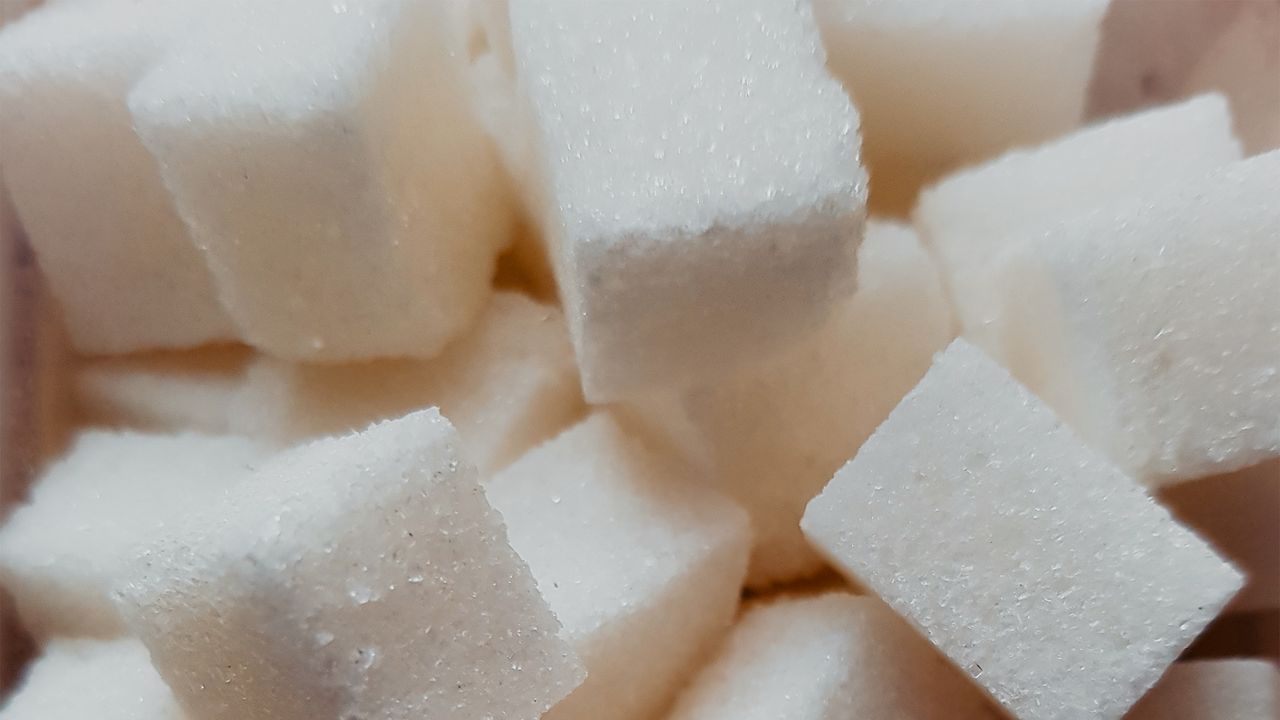There’s no way around it—many of us consume far too much sugar. Though the maximum recommended daily amount of sugar is 9 teaspoons, most adults in the United States average a whopping 17 teaspoons each day.
Of course, a lot of that sugar is consumed accidentally. Often, it is hidden in plain sight. According to research, between 60% and 80% of packaged foods and beverages sold in grocery stores contain added sugar. And it’s not just in the obvious “sweet” foods like cookies, cakes, and chocolates either; even so-called savory foods like dips, sauces, and soups are often covertly laced with sugar in some form. Think: high fructose corn syrup, fruit juice, and aspartame. Sugar is so omnipresent in our foods that it insidiously creeps into our diets and becomes addictive.
Luckily, there are some things you can do to cut back. First, learn to read ingredient labels and remember that anything that ends in “-ose” is usually a form of sugar—i.e. glucose and sucrose. Next, avoid processed foods as much as possible. And, lastly, find substitutes for white sugar that won’t cause blood glucose to spike.
The latter isn’t as hard as it sounds. Many natural sweeteners come without the glucose-spiking qualities of conventional white sugar. Here, we’ve listed some favorites along with their glycemic indexes (GI)—a.k.a. the rate at which the glucose level of the blood is raised on a scale of 0 to 100, with 100 being pure glucose. After all, sometimes you need a little something sweet. Life is short—and a life without the occasional treat would be no fun at all.
5 natural sweeteners that won’t spike glucose
1. AGAVE SYRUP (GI 15)
Agave syrup is a natural sweetener extracted from the sap of the agave plant, which is the same plant that tequila is made from. Agave has a fluid texture and a sweet flavor thanks to its fructose concentration, but its glycemic index is three times lower than that of white sugar (GI 15). It can easily be used in drinks, desserts, dressings, and other dishes that require a little sweetness.
2. Home (NING 55)
Though vegans may want to stay away, raw honey is a great sugar substitute. With a moderate glycemic index (GI 55) and distinctive flavor, it’s the perfect compliment to healthy breakfasts and snacks. Most honey—especially Manuka—also contains medicinal properties and can be used for everything from soothing sore throats to healing wounds. Win-win.
3. Coconut sugar (GI 35)
Coconut sugar is the natural sweetener obtained from the sap of coconut blossoms. Less refined than white cane sugar, it has a fairly low glycemic index (GI 35), making it a sensible alternative for curbing cravings. It also contains a significant amount of inulin, a prebiotic fiber beneficial to digestion. And its unique, sweet, caramelized flavor makes it an indispensable part of the culinary repertoire, especially in pastry-making.
4. Monk Fruit (Gi 0)
Monk fruit is 250 times sweeter than cane sugar, yet it contains no calories or carbohydrates. Derived from the fruit of the monk fruit plant, this natural sweetener contains mogrosides that do not raise blood sugar levels—it does not contain any glucose or fructose. Thus, the glycemic index of monk fruit sugar is 0, which means it does not raise blood sugar levels.
5. Date Syrup (GI 47)
Dates are like nature’s candy, with a sweet, caramel flavor. But despite their confectionary conjurings, the fruit’s glycemic index is around 47, less than half that of conventional sugar. Same goes for date syrup, which contains essential minerals like potassium, magnesium, and iron as well as antioxidants and fiber.
Have a beauty or wellness trend you’re curious about? We want to know! Send Vogue’s senior beauty & wellness editor an email at beauty@vogue.com.





